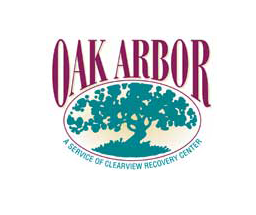Oak Arbor
4507 Highway 49 South
Hattiesburg, MS 39401
Phone: 601-545-2925
Toll Free: 888-291-0646
General Information: info@oak-arbor.com
Latangelia Howard,
Business Office Representative:
Referral Coordinator:
VA Grant Per Diem Coordinator:
Business Hours: 24/7
What You Should Know Before Attending an AA or NA Meeting
- By Admin
- •
- 12 Jul, 2018
- •

If you have sought out help for an addiction, you have likely heard of Alcoholics Anonymous (AA) or Narcotics Anonymous (NA). These are the most popular of the support groups available for individuals with substance abuse problems.
Alcoholics Anonymous has existed since the 1930s when two men decided that they wanted to create a group with a unified goal: to empower individuals to quit drinking. Narcotics Anonymous and other 12-step programs followed suit.
Addiction is dangerous. Thousands of men and women die each year as a result of drug and alcohol addiction. Now is the perfect time to seek treatment for substance abuse disorders. It may very well save your life.
What Is AA?
Alcoholics Anonymous is a group of men and women who are committed to sobriety as the result of a past drinking problem. In fact, this is the only requirement for joining the organization.
Anybody is free to become a member of AA if they have a problem with alcohol. Members do not have to have any specific affiliation with industry, profession, race, political party, or religion.
Therapy is the main component of AA. Group sessions become a major focal point of recovery for many people with substance abuse concerns. In these sessions, individuals share their feelings with each other and listen to the stories of other members.
One of the major difficulties people face in AA is the fact that alcohol is legal. Many people struggle with the idea that alcohol can become a problem because it is so readily available. For this reason, AA can be crucial.
What Is NA?
Narcotics Anonymous is extremely similar to AA in terms of the format. In fact, its formation was derived from the creation of AA. Narcotics Anonymous came into existence in the 1950s, and it utilizes the same concepts of AA and appropriates them for drug use.
While the group may be called NA, members may admit addiction to any type of drug. You need not be addicted to narcotics in order to benefit from attending meetings.
Do Meetings Work?
According to Scientific American, NA and AA have worked for many people. The key is that you must work toward your goals in conjunction with attending meetings. Staying sober requires that you reach out and occasionally ask for help.
What Are the 12 Steps?
Both Alcoholics Anonymous and Narcotics Anonymous revolved around the concept of using 12 steps. The steps are principles designed to eliminate drinking alcohol but also to bolster a more spiritual lifestyle.
One of the most critical steps is the first one, an admission that meeting attendees are powerless to alcohol, leading to unmanageable living conditions. AA members also typically believe in a greater power that can help restore them. Another step calls on the individual to understand his or her wrongdoings and seek to make amends for them.
What Are the 12 Traditions?
The 12 traditions of AA refer to the outline of concepts that structure the community. Following the traditions is meant to ensure that meetings continue to serve a useful purpose. You can read the booklet describing these traditions on the Alcoholics Anonymous website.
Where Can You Receive Help?
Meetings are a great place to begin. If you feel nervous, don't worry about it. That's completely natural. Everybody attended a meeting for the first time once.
Oak Arbor focuses on treatment for the individual; we understand that each person needs a different level of care, and this is where our experience and compassion come into play. Staff members at Oak Arbor are experienced and understanding of addiction, encouraging the use of both AA and NA. Call today to learn more about our offerings.
Alcoholics Anonymous has existed since the 1930s when two men decided that they wanted to create a group with a unified goal: to empower individuals to quit drinking. Narcotics Anonymous and other 12-step programs followed suit.
Addiction is dangerous. Thousands of men and women die each year as a result of drug and alcohol addiction. Now is the perfect time to seek treatment for substance abuse disorders. It may very well save your life.
What Is AA?
Alcoholics Anonymous is a group of men and women who are committed to sobriety as the result of a past drinking problem. In fact, this is the only requirement for joining the organization.
Anybody is free to become a member of AA if they have a problem with alcohol. Members do not have to have any specific affiliation with industry, profession, race, political party, or religion.
Therapy is the main component of AA. Group sessions become a major focal point of recovery for many people with substance abuse concerns. In these sessions, individuals share their feelings with each other and listen to the stories of other members.
One of the major difficulties people face in AA is the fact that alcohol is legal. Many people struggle with the idea that alcohol can become a problem because it is so readily available. For this reason, AA can be crucial.
What Is NA?
Narcotics Anonymous is extremely similar to AA in terms of the format. In fact, its formation was derived from the creation of AA. Narcotics Anonymous came into existence in the 1950s, and it utilizes the same concepts of AA and appropriates them for drug use.
While the group may be called NA, members may admit addiction to any type of drug. You need not be addicted to narcotics in order to benefit from attending meetings.
Do Meetings Work?
According to Scientific American, NA and AA have worked for many people. The key is that you must work toward your goals in conjunction with attending meetings. Staying sober requires that you reach out and occasionally ask for help.
What Are the 12 Steps?
Both Alcoholics Anonymous and Narcotics Anonymous revolved around the concept of using 12 steps. The steps are principles designed to eliminate drinking alcohol but also to bolster a more spiritual lifestyle.
One of the most critical steps is the first one, an admission that meeting attendees are powerless to alcohol, leading to unmanageable living conditions. AA members also typically believe in a greater power that can help restore them. Another step calls on the individual to understand his or her wrongdoings and seek to make amends for them.
What Are the 12 Traditions?
The 12 traditions of AA refer to the outline of concepts that structure the community. Following the traditions is meant to ensure that meetings continue to serve a useful purpose. You can read the booklet describing these traditions on the Alcoholics Anonymous website.
Where Can You Receive Help?
Meetings are a great place to begin. If you feel nervous, don't worry about it. That's completely natural. Everybody attended a meeting for the first time once.
Oak Arbor focuses on treatment for the individual; we understand that each person needs a different level of care, and this is where our experience and compassion come into play. Staff members at Oak Arbor are experienced and understanding of addiction, encouraging the use of both AA and NA. Call today to learn more about our offerings.
You might not know whether a loved one struggles with addiction unless you recognize the symptoms of such a problem. Take a look at four potential signs.
Do you struggle with addiction, or do you know someone who does? If so, read our blog to learn about four commonly asked questions about addiction.
Some individuals have a naturally high tolerance to particular drugs, while others develop tolerance over time. Learn more about this phenomenon.
If you can't sleep either without chemicals or because of them, learn about the relationship between substance abuse and sleep problems.
Does your substance abuse comes from personality or inherited proclivity? See three key points that can help you understand the genetic side of addiction.





